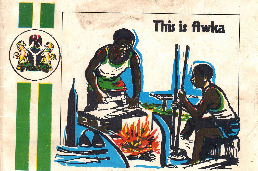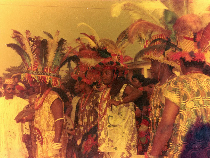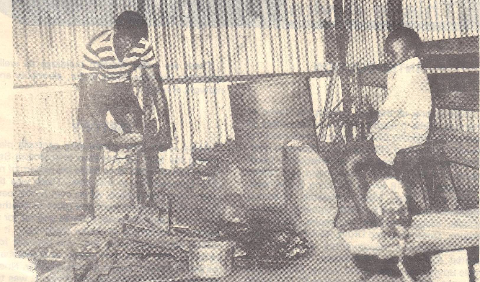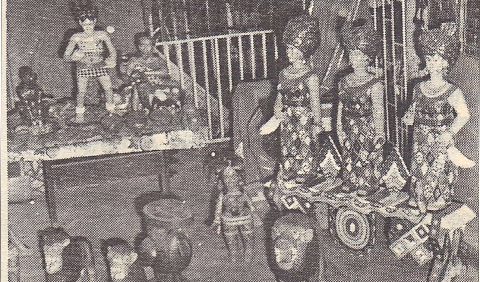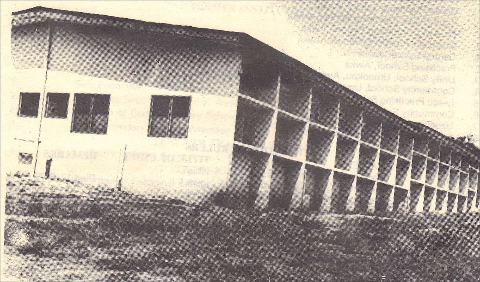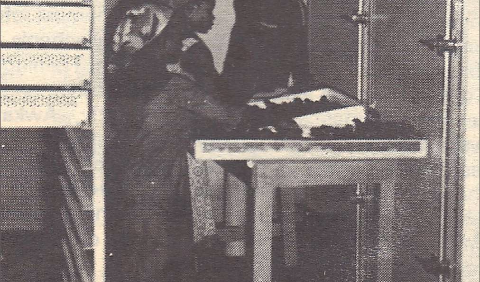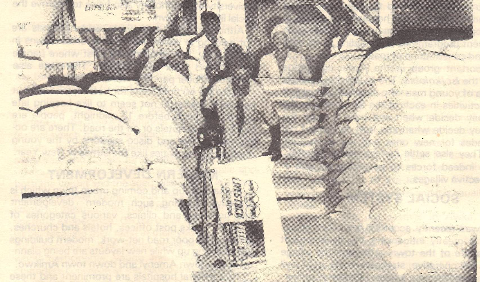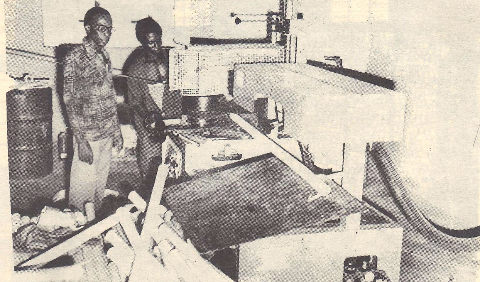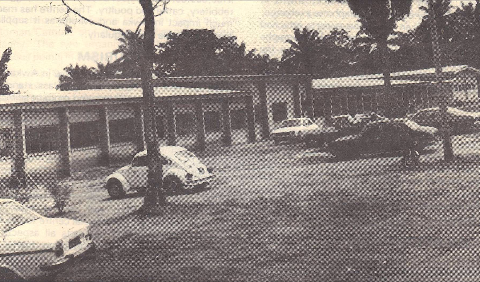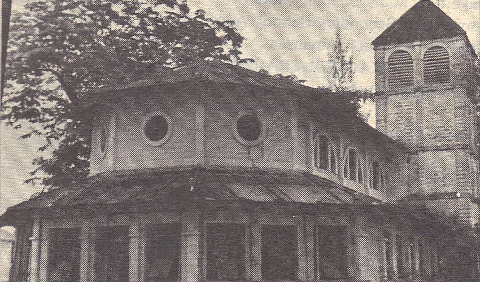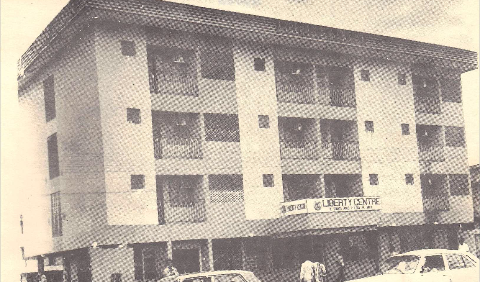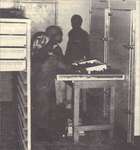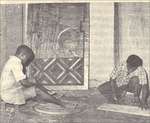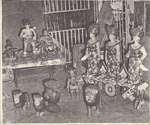THIS IS AWKA
Awka town is the capital of Anambra State of Nigeria. Awka has 33 villages and in 1980, the population of the town was 80,000. In 1991, it grew to 104,682. The 2006 Nigerian census, estimated Awka to be 301,657.
Awka is surrounded by Nise, Nibo, Amawbia, Ebenebe, Mgbakwu, Isu-Aniocha, Awba, Ugbenu, Ugbene, Okpuno, Umuawulu, Amansea, and Urum.
The town lies at about 40 kilometres east of the Niger from Onitsha and shares boundaries with Nibo, Amawbia, Isiagu, Okpuno and Amansea. It stretches from about kilometre 40 north of Onitsha/Enugu road to about kilometre 50 towards the south on the same road and as one travels along the Onitsha/Enugu road, one observes Amansea town and the village of Umuokpu which is a part of Awka. A distance about 20 kilometres mark the beginning and the end of the area from Achalla to Nise starting at the boundary with Agulu in Aniocha local government area, the town stretches over a distance of about 26 kilometres.
THE OFFICIAL HISTORY OF AWKA TOWN
"This is Awka" was published by the Ministry of Information, Enugu (Then Government of Anambra State, with capital at Enugu) before 17/6/1979
Awka is an Igbo community centrally placed among the Igbo communities of Anambra State. The origin of Awka town takes the pattern of most many centuries behind, when men in this part of the world wandered from one place to another in search of a suitable place to settle and toil for subsistence.
According to Awka mythology, it was during such wandering that one Nneoshi found himself at the place now known as Ugwuoba. He settled there and began to raise a family. Nneoshi had two sons: Ugwuoba and Awka. It was traditional in those days for the first son of a man to occupy his “Obi” (family house) on the event of his death. This tradition still obtains in most communities in the Awka local government area. On the death of Nneoshi, therefore, Ugwuoba his first son, took over his “Obi”. Awka his brother then decided to establish his own “Obi”. He headed southwards and pitched his camp at this place now called Awka. Awka grew to raise a family of two major clans called Ezi and Ifite.
As the Awka family began to expand into villages, two major assimilations occurred. Nnebuzo, a master blacksmith from Umana in what is now called Ezeagu local government in course of his travels, performing his craftsmanship in blacksmithing finally settled at Amikwo, one of the villages of Awka. He took a wife there and had several children but was survived by one only named Agulu. Agulu who took to his father’s profession expanded his family to seven quarters and with Amikwo and Ezioka now constitute the Ezinato clan.
The Umudioka people of Idemili have been good craftsmen, artists and medicine men. They travel all over Igbo land performing such specialised art like “IWA0EZE and IGBUICHI” as well as curing the sick. It was one of such travels that brought one of the sons of Dioka to Awka where he later settled, married and expanded to found the Umudioka quarter which is the largest quarter in Awka now. As families grew, expansion continued and Awka town developed into four main villages with 33 quarters all tied together by one common and tradition.
Geography
Awka, like most towns in Anambra State, is in the rain forest region with two seasonal climatic conditions: the rainy season and the dry season with short spell of harmattan. The dryness of the hot period of February to May while the wet period of between June and September is very cool. The harmattan which falls within December and February, is a period of scorching cold weather when the atmosphere is generally misty.
There are no major rivers in Awka but there are a number of streams and springs that supply water for household chores to the inhabitants. There are divergences in the composition of the soil, ranging from the rich loamy soil with immense agricultural potentialities in the north and north-east – to the sandy soil in the south and south-west where only corn and vegetables can be gainfully cultivated. But agriculture is not generally practiced on commercial basis but mostly on subsistence level. The land is considerably fertile and such agricultural products like cassava, yam, fruits and vegetables are harvested for local consumption. Awka is however surrounded by agricultural communities that make food available at the Eke Awka market all the year round.
The topography of the area presents a panorama of scenic beauty and it consists of the vast low-lying western and northern plains and the hills which traverse the other parts of the area.
The Old Government Station
According to the Awka community, the history of the Old Government Station which accommodates the infrastructure facilities of the Awka Local Government Headquarters started in 1902 with a family war between Amikwo and Agulu, two leading villages of the Ezi clan. The war which raged for four years became so deadly that Agulu, who could not subdue Amikwo, decided to call in government as an ally to help it subdue Amikwo. The leaders of Agulu village in 1904, approached Major Moorehouse, the head of the Southern Province of the colonial government, which had its headquarters then at Asaba. Major Moorehouse, with his forces, came to Awka in 1905 and camped at the former Oye market in Umuogbu quarters. Instead of siding with any of the warring parties, Major Moorehouse disarmed both parties, and brought the whole of Awka and environs under his administration.
Having established his authority over Awka and environs, Major Moorehouse wanted an area for his permanent station. The Awka community met and decided that in order to cover up the secrets of “long juju” (slave trade business) which was lucratively practiced in Awka during that period, Major Moorehouse should be given a piece of land away from where the natives lived. They showed Moorehouse a place known as “Aguegbe”.
Moorehouse inspected the place and found it suitable and then moved his camp to Aguegbe. Subsequent administrations after Moorehouse based at the place but when the people of Awka and Amawbia started disputing the ownership of the place, Government took it over and called it Old Government Station.
The People
Because of their trade – blacksmithing – the fathers of the present generation of Awka people travelled a lot and were able to come in contact with the outside world and thus learnt early how to socialise and cultivate the habit has been handed down to the younger generation. The Awka man is however crafty and witty, attributes that enables him influence the behaviour of his neighbours of Ugwuoba, Njikoka and some parts of Aguata. This influence is easily identified in the Awka dialect which is widely spoken in those areas.
Perhaps because of the travels of their ancestors or their outgoing nature, the Awka people do not discriminate against strangers, rather they accommodate their strangers elements and are always ready to help in solving their problems. But they do not tolerate evil whether committed by the native or the stranger. Many years ago, the Awka man was known and identified by the blacksmith profession. Though, modern education has changed many things and the Awka man is now found in the white-collar job, the professions and big business, blacksmithing is an occupation that is commonly pursued and it begins early in the lives of men.
Customs
The custom of a people is said to be their life and Awka, this saying has continued to apply despite all efforts by Christian missionaries to change the cultural patterns in a bid to convert the people to the Christian religion.
Although the missionaries who came to Awka ain 1902 succeeded in converting some of the people to Christianity, many remained steadfast to the traditional belief and practice which remain untainted up-till now. Fetish shrines can be seem in villages and these are very much worshipped like before shrines and suspected murderers are made to swear before the murdered person.
Marriage is till very sacred sin the traditions of the Awka people and all traditional rites of marriages must be fully performed by the man before he takes away the bride as wife. Even Christians must perform the traditional rites of marriage before going to the church. But civilization has rendered some marriage rites like fattening extinct. Marriage in Awka therefore signifies responsibility and any unmarried grown-up man in Awka cannot occupy his father’s Obi. The Osu caste system was actively practised in Awka in the olden days but it has grown almost extinct now.
Burial ceremonies are still very much in vogue and they are categorised into first and second Burial ceremonies have their rituals too. Titled men have dignified and privileged status in the society and they are given befitting burial when they die. Children struggle to bury their father or mother well by killing cows and later performing the Mgba-Mmia Ceremony. By killing a cow to bury his father, an Awka man has qualified to be buried with a cow himself.
Titles
Title taking is the greatest tradition cherished and preserved by any Awka man as he will like to be greeted by his title. When you meet an Awka man, he will greet you by your title and he will expect you to return the greeting by his own title.
Title taking has stages in Awka and one can start counting with Igba Agu, which is tracing from which of the dead relations the baby boy or girl incarnated. The man then performs the “Chi” ceremony which qualifies him to be a family or village head. He can then occupy the Obi if it is his turn. After the Chi, the Awka man then performs the Amanwulu. All these minor titles or ceremonies prepare him for higher titles like Ajilija and Ozo.
Ajilija: It is a distinguished, respectable and a class title in Awka and that is why every Awka man aspires to it. Unless a man takes the Ajilija title, he can hardly stand to speak on important issues concerning the affairs to Awka. It is a very expensive title which involves upwards of three to five thousand naira. Ajilija indicates that somebody is of average wealth, responsible and can be reckoned with in the society. A wealthy man can be reckoned with in the society. A wealthy man can initiate as many of his children as possible and if he initiates like five of his sons, he answers Omeise. A fully initiated person is then qualified to wear a cap and to carry a special stool.
Ozo: This is the height title in Awka. It is the most expensive and most dignifying and so it is not common. It takes 28 days or seven native weeks to complete during which time the Ozo initiate feeds the community, especially the Ozo members. After 28 days of one ceremony or the other, the initiate then worships at the Nne-Awka and Nna Awka shrines. He then receives the emblem of authority, and can wear an eagle feather on his red cap and tie a white thread round each leg at the ankles. He is now an authority in Awka and a member of the ruling class.
Festivals
The Awka community performs many festivals annually and the period of each festival is determined by counting the appearance of the moon so that each native month has its own festivals are: Imo Awka, Ukwu Na IJe and the Otite or Onwa Asa.
Imo Awka is the most popular and most important of the Awka traditional festivals. It is the festival which marks the beginning of the planting season. It is generally performed around May of every year and it lasts 28 days or seven native weeks. Imo Awka is the festival of the male and both the young and the aged take part. It is a masquerade festival during which the youth with their colourful masquerades roam the streets exhibiting youthful exuberance. On the other hand, the aged sit by, recalling their feast in their youthful days on such occasions. The grand finale is the day the whole participants, young and old and the masquerades converge at the Nkwo Imo Awka shrine where the high priest performs some rituals and prays that God gives them favourable weather during the farming season. He also prays for the good health of every Awka man and woman during the year.
Otite, also popularly known as the Onwa Asa, marks the end of the year. It is a festival during which it is expected that every Awka man abroad must come home. It involves feasting too and the highlights is the killing for one’s father a fowl or goat which it ever a man is capable.
Ukwu Na Ije is an ancient festival marking the end and the beginning of the blacksmithing year. Several years back, blacksmithing was the main trade of the Awka people. The blacksmiths travelled a lot and sojourned in many parts of the country making hoes, matchet, dane guns, spears and ornaments. They returned home at the end of each year to take stock of the past and plan for the future. Before they would go back to their respective stations, the Ukwu Na Ije festival was observed. During the festival, the blacksmiths thanked God for guiding them through the year in foreign lands and begged Him to help them in their business during the New Year. During the Ichie of Awka era, Ukwu Na IJe is fixed to coincide with the anniversary celebration of his throne, popularly referred to as Ofala festival and it was usually very colourful.
Age Grades
Age grouping is an important aspect of Awka culture. Age groups are organised on five-year basis (Ulo-ise) in Awka and they are very active during burial ceremonies. They are also assets in the development programmes like building town halls schools and construction of roads.
An important group in the Awka age grade system is the Isi Ikolobia. The Isi Ikolobia consists of a group of young men who direct the social and cultural activities in each of the 33 quarters in the town. They decide when and how to discard old masquerades for new ones and review cultural dances. They also settle certain village’s disputes. They are indeed forces to be reckoned with in their respective villages.
Social System
Awka was recently accorded an urban status and this is greatly influencing the development and social life of the town, although the village system is still operative, strangers made up of civil servants, businessmen, traders, teachers, university dons, technicians and labourers rent houses and thereby mix up with the native in central Awka where business is carried out. The siting of a college of Education and a campus of the University of Technology also helps to improve the social life of the town.
Although night clubs with resident bands are not existing in Awka like in most urban towns in the country, few good hotels exist where people can go and relax with friends. There are also numerous “beer parlours” for all comers.
There are no time limits for hotel operations but people in Awka do not seem to like keeping late nights. As such before 12 midnight, people are hardly seen in hotels or on the road. There are occasional parties and disco sessions by the young ones during festivals like Christmas or new year.
Traditional Rulers
| NAME | TITLE | YEAR | REMARKS |
| Christopher Obuorah Nebe | The Ichie of Awka | 1959 t0 1984 |
The First Installed traditional ruler |
| Eze-Uzu I | |||
| Eze-Uzu II | |||
Historical Pictures


